Search
Did you mean: Agora?
Remove Ads
Advertisement
Search Results
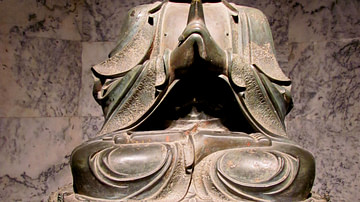
Definition
Esoteric Buddhism
Esoteric Buddhism is the mystical interpretation and practice of the belief system founded by the Buddha (known as Sakyamuni Buddha, l. c. 563 - c. 483 BCE). It is known by several names and is characterized by a personal relationship with...
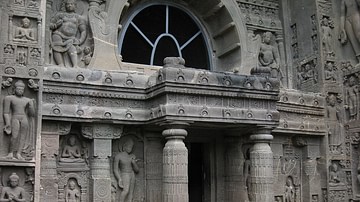
Definition
Ajanta
Approximately 67 miles (107 km) to the north of Aurangabad in the Indhyadri range of Western Ghats lie the caves of Ajanta. The 30 caves, famous for their early Buddhist temple architecture and many delicately drawn murals, are located in...
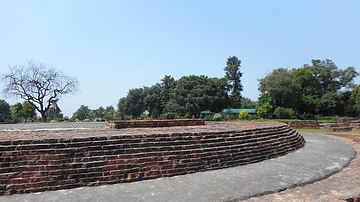
Image
Dharmarajika Stupa, Sarnath
Remains of the Dharmarajika Stupa. It was built over the relics of the Buddha by Ashoka in the 3rd century BCE. It used to be a small circular structure, about 13.5 meters in diameter. It was pulled down during the 18th century CE on orders...
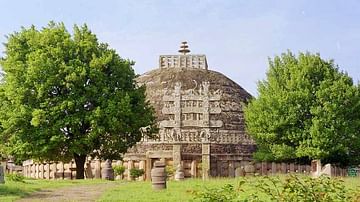
Image
The 'Great Stupa' at Sanchi
The 'Great Stupa' located at Sanchi, a village in the Raisen District of the state of Madhya Pradesh, India. This stupa was originally commissioned by the emperor Ashoka the Great in the 3rd century BCE. According to some Buddhist accounts...
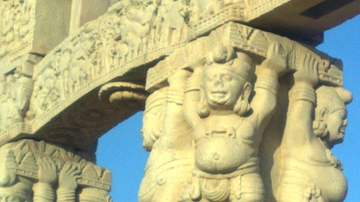
Image
The Great Stupa at Sanchi
The 'Great Stupa' at Sanchi is the oldest stone structure in ancient India and was originally built by the emperor Ashoka the Great in the 3rd century BCE. Its nucleus was a simple hemispherical brick structure built over the relics of the...
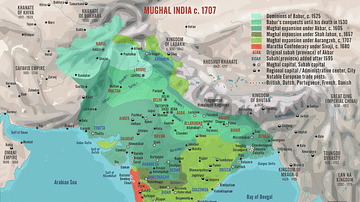
Image Gallery
9 Maps on Indian History
In this gallery, we examine the Indian subcontinent through nine maps to illustrate the region's history and rich tapestry of diverse cultures, civilizations, and pivotal events spanning millennia. The Vedic period established the groundwork...
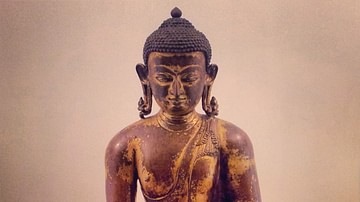
Collection
History of Buddhism
Buddhism began in the region of modern-day India, founded by Siddhartha Gautama (the Buddha, l. c. 563-c. 483 BCE), and developed between c. 400-383 BCE before it spread to other regions through the efforts of the Mauryan king Ashoka the...

Article
A Brief History of Veterinary Medicine
The English word 'veterinarian' as defining one who provides medical care to animals, comes from the Latin verb veheri meaning “to draw” (as in "pull") and was first applied to those who cared for “any animal that works with a yoke” – cattle...

Image
Lumbini Ashokan Pillar
Brahmi inscription on an Ashokan Pillar (3rd century BCE) found at Lumbini in present-day Southern Nepal.
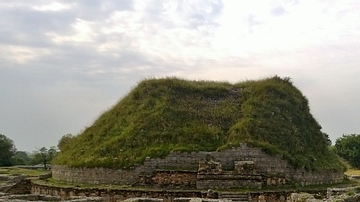
Image
Dharmarajika Stupa
Dharmarajika Stupa, near Taxila in northern Pakistan, thought to be built by the Maurya Emperor Asoka in the third century BCE over the remains of the Buddha and expanded upon by succeeding rulers.